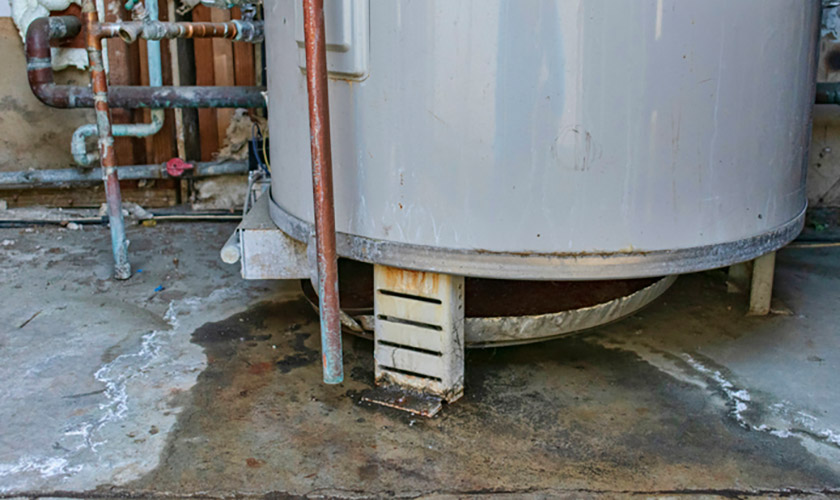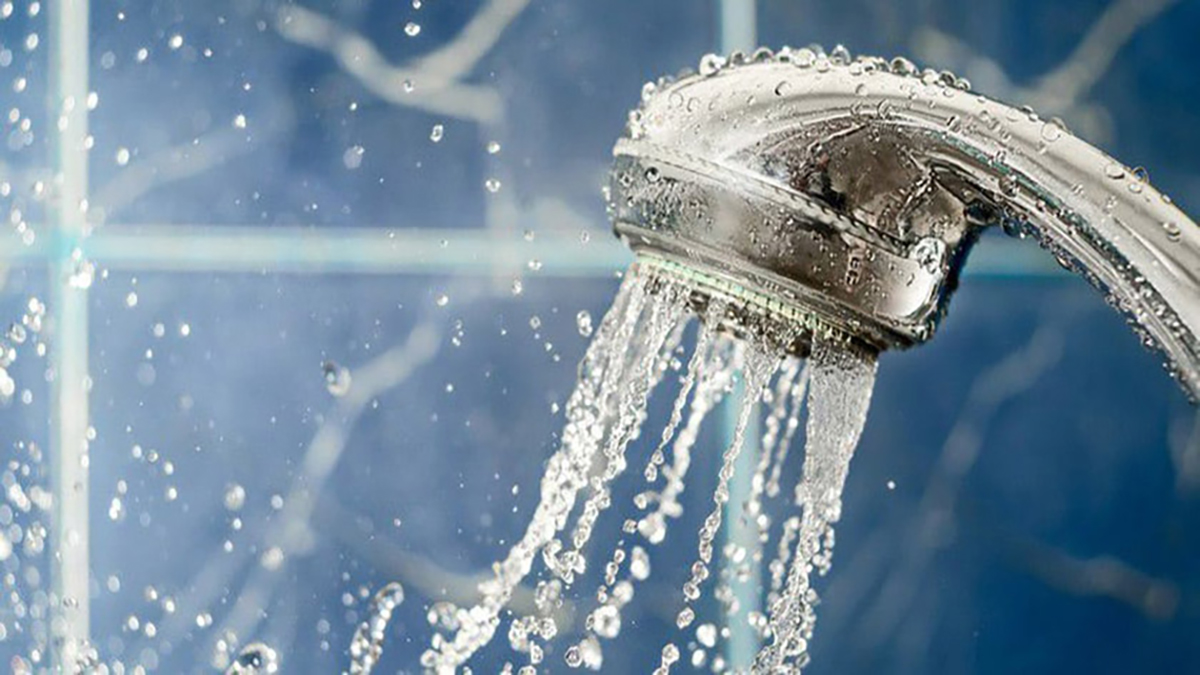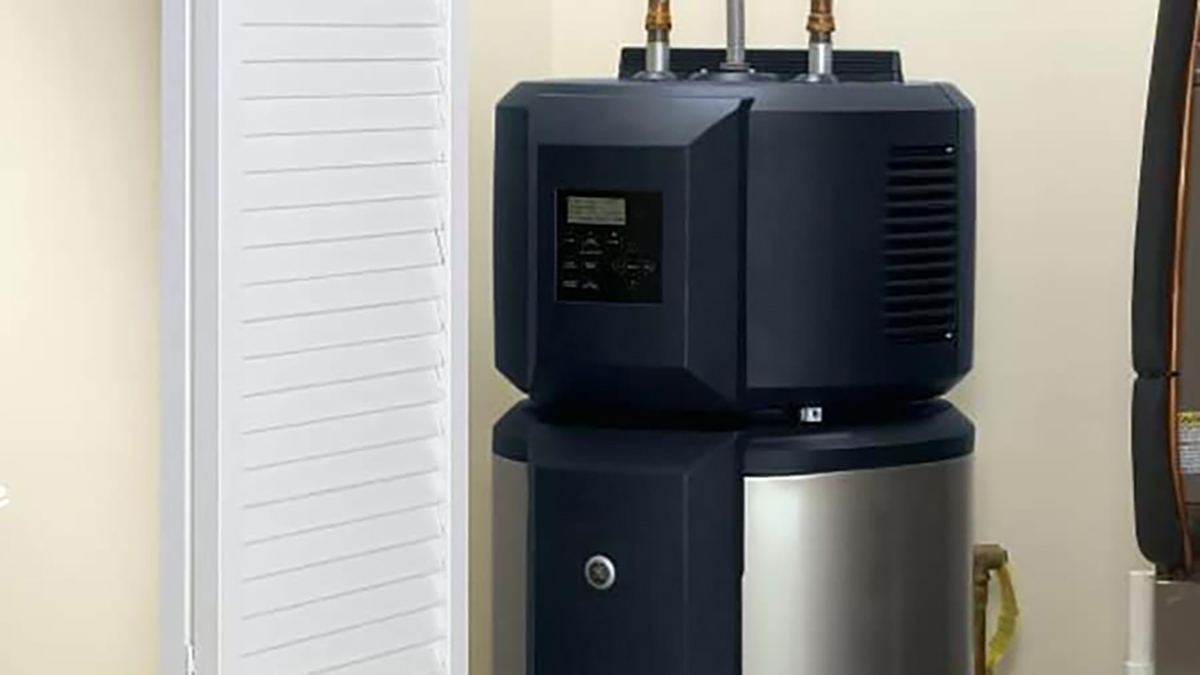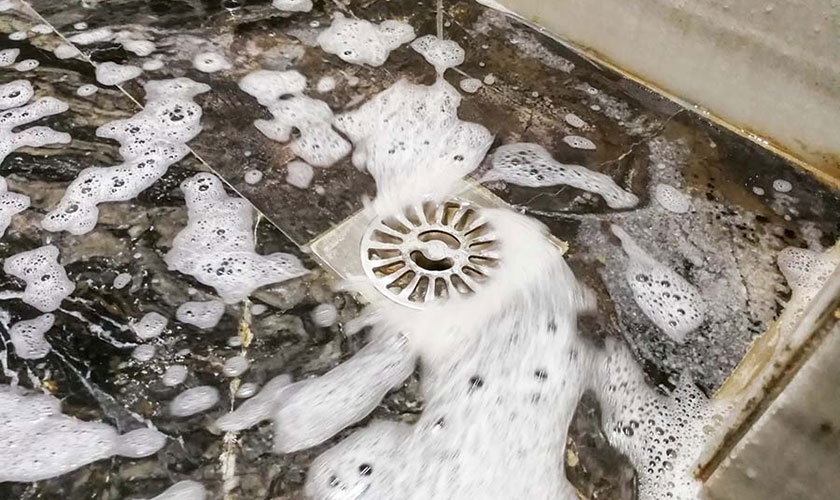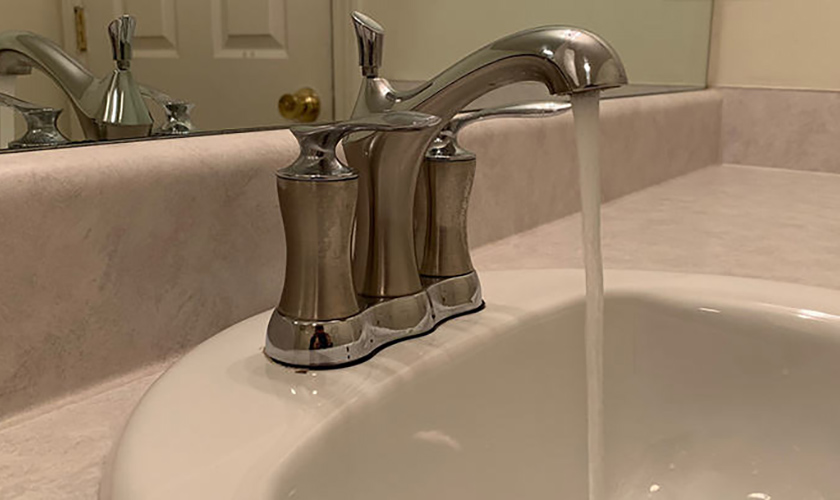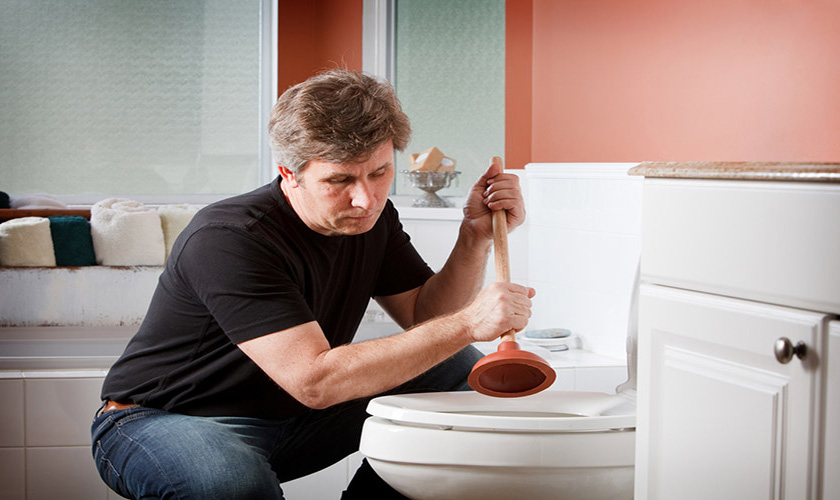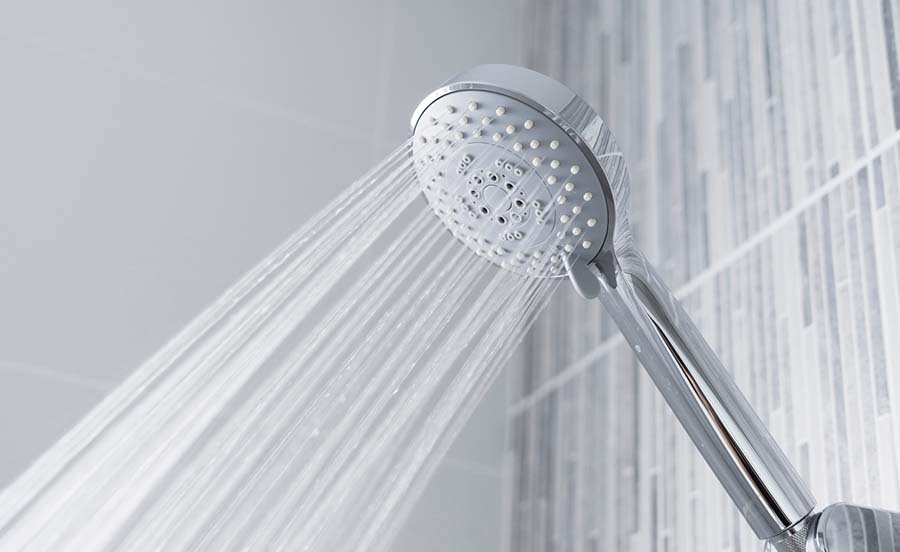
A leaking water heater is not uncommon, and sometimes it is not possible to diagnose and fix the issue without first using the water for reasons such as taking a shower.
In most cases, you can take a shower when your water heater is leaking, but it depends on the size of the leak. Typical water heater leaks at the drain valve, T&P valve, or deliver pipes usually only let a small amount of water out. If the leak is minor, it’s safe to take a shower before fixing it.
If any of these leak locations are spouting a large amount of pooling water, it is best to consult a plumber before continuing to use your water. But that’s not all there is to know about showering with a leaking water heater. I did some research, and here is what I found:
Can You Still Use Water if Your Water Heater Is Leaking?
In most cases, you can still temporarily use your water if your water heater is leaking. Most leaks are minor and won’t immediately affect your water usage. However, it is essential to identify why and where your water heater is leaking.
First, if it is not apparent that it is your water heater that is leaking, it may be helpful to do a bit of investigating to determine if your water heater is, in fact, the culprit.
You could have other sources of water leaks in your home, including:
- furnace drain lines
- water softener discharge lines
- condensation
- different plumbing configurations.
Before turning off your water, they suggest drying the area affected by the leak and then putting down dry paper towels or newspapers so that you can see where the saturation is coming from over a few days.
If you need immediate results, there is also a faster way to check if your water heater is really leaking.
How Do You Find a Leak in Your Water Heater?
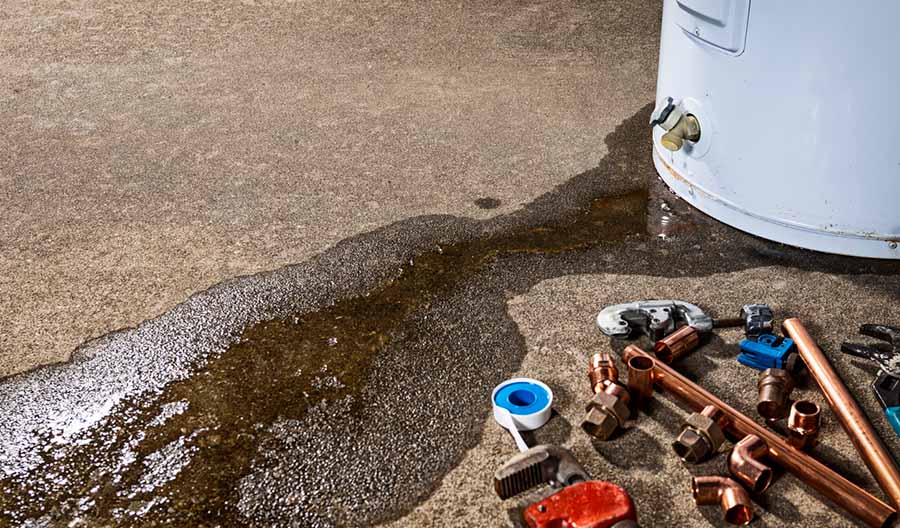
Before coming up with a solution, you need to confirm first if the leak is actually from your water heater. If there is a furnace drain line near your water heater, it’s a possible culprit too. It’s best to check other possible water leak sources as well.
Once you confirm that it’s really your water heater, it’s time to inspect it. The process is pretty straightforward. To find where your water heater is leaking, first, turn off your water supply and your power source to the water heater. After shutting those off, you need to drain the tank so that you can inspect problem areas for corrosion, loose valve connections, or corrupted pipes.
The steps in turning off a water heater may vary depending on the type, brand, and model.
Most water heaters have integrated water shut-off tap, and if they don’t, you’ll have to shut off the main water tap to your home. Next, make sure to switch off your water heater breaker. Simply go to your breaker panel and find the switch labeled “water heater.”
If your unit runs on natural gas, you need to locate your thermostat, with three settings (On, Off, Pilot). Turn the thermostat Off to turn the gas supply off.
Next, if you have a typical water heater, you will need to drain your tank. Your water heater will have a drain valve at the bottom. Attach a garden hose to the valve and drain the water into your sump pit or floor drain. If you don’t have either of those, you may have to get creative with a bucket or other type of container.
After completing those steps, you can now start inspecting your water heater. To save time, check on leak-prone areas first.
Where Does My Water Heater Leak From?
Areas prone to leaks typically include the following:
1. Cold Water Inlet/Hot Water Outlet Hose
Possibly the simplest reason for a leaking water heater, loose hoses are an easy fix. The cold water inlet (incoming hose to the water heater) or the hot water outlet (outgoing hose carrying hot water out of the heater) may not be connected securely to the tank.
If this is the case, simply try tightening the hoses at the connection site with a pipe wrench.
2. Drain Valve
All standard water heaters have a drain valve. The valve, located near the bottom of the water heater tank, is used to drain water when you need to repair or do regular maintenance.
To find out if the drain valve is causing your leak, make sure it is closed properly. If it is closed completely and there is still moisture around the actual drain opening, the valve may need replacing.
3. T&P Relief Valve
The T&P relief valve is a mechanism of your water heater that keeps your water heater from overheating and developing too much air pressure within the tank. Excess heat and pressure are dangerous states for your water heater to be in, as scalding and explosion could result.
If the T&P relief valve is not working correctly, this is due to a faulty valve, a clogged valve, or too much pressure or high water temperatures within the tank.
See our Leaky Water Heater Pressure Relief Valve article if you want to determine if your T&P relief valve is working correctly.
4. Internal Tank
Most water heater leaks come from the water tank itself. If water is pooling under or around the bottom of your water heater, the chances are good that your internal water tank is damaged.
The cause of leaks in internal tanks is usually sediment build-up. If you don’t remove sediment from the tank, it will deteriorate its inner lining through corrosion and cracking.
Unfortunately, if an internal tank leak is present, you will need to replace your water heater. Regular maintenance can extend the life of your unit, but even the most diligent homeowners will find themselves replacing their water heaters at some point.
Is It Dangerous to Have a Leaking Water Heater?
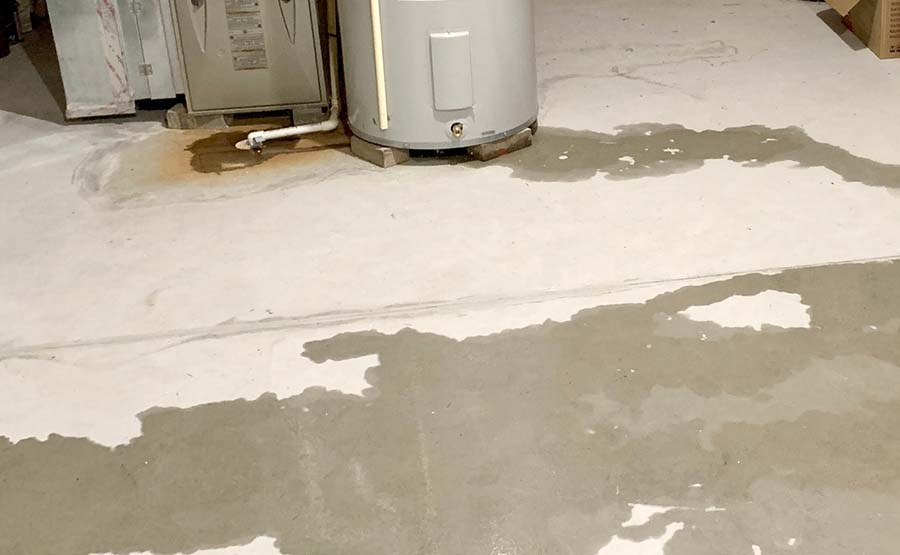
In most situations, it is not dangerous to have a leaking water heater. Water heater leaks are a common occurrence and are most often just an inconvenience, not a danger.
That said, there are instances where a leaking water heater can pose a more serious, potentially dangerous problem.
Suppose the amount of water leaking is substantial, or the leak remains unfixed for an extended period. In that case, the damage could reach the flooring, walls, or other objects located near the water heater. Although not inherently dangerous, this damage can be very costly to the homeowner and present potential health risks if mold grows due to the leak.
Electrical cords plugged in near the water heater can pose an actual danger if the water leak makes contact with the cords or the electrical outlets. Everyone knows water and electricity don’t mix!
For more information on the dangers of a leaking water heater, check out our Repair a Leaking Water Heater Guide.
How Long Will a Hot Water Heater Last Once It Starts Leaking?
No one knows how long a leaking water heater will last. A minor leak could turn into a significant gusher in a matter of days, hours, or minutes. The longer you leave the issue unresolved, the greater the chance that the unit will be irreparable and stop working.
Suppose your water heater location can cause minimal damage in the event of a major burst. In that case, you may consider using an electronic leak monitor device to alert you to any water accumulating on the floor.
However, this approach is a gamble and is recommended only as an interim measure until you resolve the issue. Water can cause a great deal of damage in a short time and create mold.
The best way to avoid this situation is to maintain your water heater.
A leaking water heater means a problem with one or more of its components and the related wear and tear. For example, if a broken pressure valve is the source of the leak, the sides of the tank are under pressure and will continue to crack. If you inspect and replace the pressure valve, you may avoid leaking along with costly repairs or damage.
Sediment build-up also plays a significant role in the longevity of your water heater. If sediment accumulates in your water tank, you are at an increased risk of the walls rusting and cracking. Once damage like this occurs, it is tough to know how long your water heater will continue to work safely or efficiently.
Is a Leaking Water Heater an Emergency?
A leaking water heater is generally not considered an emergency. Leaks from water heaters almost always start small, and you should have time to deal with the issue properly. You should consider it an emergency if the tank has burst, flooding, or risk of scalding exists.
The worst-case scenario for a leaking water heater is a leak resulting from pressure build-up. If you feel this may be the case, contact a professional immediately to assess the situation.
Final Thoughts
A leaking water heater usually does not mean an immediate halt to your daily tasks requiring hot water. You can temporarily carry on with showering, washing dishes, and doing laundry while you work to fix the leak yourself or arrange for a professional to solve the issue.
Although rarely dangerous, you should promptly attend to a leaking water heater to avoid unnecessarily replacing the unit or untold damage to your home.
Sources
- Can I Take a Shower if My Water Heater is Leaking?
- Is A Leaking Water Heater Dangerous?
- What to Do When Your Hot Water Heater Leaks
- TIMES YOU NEED TO CALL AN EMERGENCY PLUMBER


